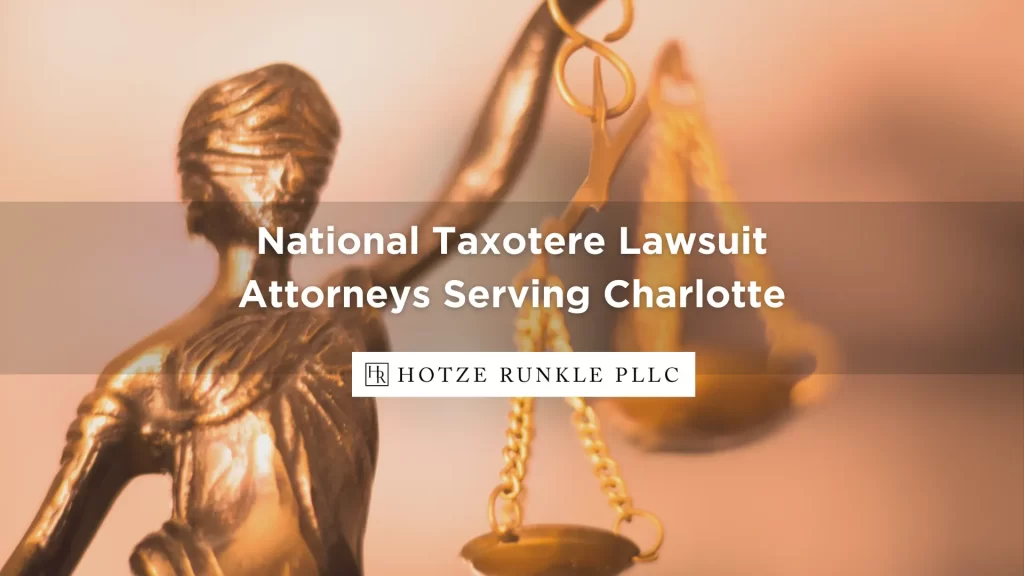
Breast cancer and other cancer patients trust doctors and specialists to do everything possible when treating their condition. For many, the path toward hope, prolonged life, and a cure is chemotherapy. And while minor side effects are typical with all chemotherapy medication, patients and doctors are aware of them and can therefore respond accordingly. But when a drug manufacturer hides details or fails to disclose the truth about serious and permanent side effects, the consequences can be devastating and decrease one’s quality of life even further than before.
A common chemotherapy drug used to treat breast cancer and other types of cancers is Taxotere (docetaxel). Manufactured by Sanofi-Aventis since 1996, the company currently has 10,000 pending lawsuits from cancer survivors claiming the company downplayed details about its side effects.
If you or a loved one has taken the chemotherapy drug, Taxotere, and are now experiencing side effects such as severe watery eyes (epiphora) or canalicular stenosis, Hotze Runkle PLLC can help you take legal action. Our team of Charlotte Taxotere attorneys has the resources and skills to take on negligent pharmaceutical companies, and we will do everything we can to hold Sanofi accountable.
On the surface, watery eyes may seem like a minor side effect. However, watery eyes may be the first symptom of what could become a permanent ocular condition, called canalicular stenosis. Patients who develop canalicular stenosis as a result of taking Taxotere experience severely watery eyes, excessive crying, blurriness, dry eyes, itchiness, and have reported a severe decrease in quality of life. Due to impaired vision, these victims cannot complete daily tasks such as driving, reading, doing work, or putting on makeup.
Canalicular stenosis is entirely preventable when the first symptoms are monitored and treated. However, doctors and patients didn’t know to watch for symptoms because Sanofi-Aventis failed to disclose them.
The Charlotte Taxotere lawsuit attorneys want victims and their families to know that they do not have to go through this time alone. The seasoned and compassionate attorneys at Hotze Runkle PLLC represent victims around the country and can help you too. To find out if you’re eligible to join our mass tort lawsuit against Sanofi-Aventis, start by taking this quiz.
How Hotze Runkle PLLC Can Help
Life after chemotherapy should be enjoyed, celebrated, and cherished. Survivors should be able to focus on getting their lives back on track, not suffering physically and emotionally due to a drug company’s reckless actions and disregard for your health. Chemotherapy patients who have suffered permanent side effects that required expensive and invasive surgery and resulted in lifelong complications deserve financial compensation. At Hotze Runkle PLLC, our mission in life is to make sure you get it.
Many cancer patients who received chemotherapy at Levine Cancer Institute, Novant Health Presbyterian Medical Center, or any other cancer hospital in the Charlotte area and are now suffering from severe eye-watering or other side effects have options for taking legal action. Unlike a typical personal injury case where a single plaintiff sues a single defendant, harmful drug lawsuits fall under the category of mass tort. Here, a single negligent action causes harm to a large group of people across multiple jurisdictions and requires the attention of a qualified attorney with experience handling these types of cases and the knowledge of what it takes to prove Taxotere caused your condition.
These cases are involved and require a thorough understanding of the law and filing deadlines, as well as the resources and courage to stand up to billion-dollar pharmaceutical companies. Your condition is not the fault of your doctors or the hospital. It’s the fault of a greedy drug company that put profit over your well-being. Our attorneys know every detail of this case, know what kind of evidence is needed, and know how to argue your case to get you the compensation you deserve.
Common Side Effects of Taxotere
Taxotere is a popular and effective chemotherapy drug used to treat various types of cancer, including breast, lung, prostate, stomach, head, and neck. The drug is manufactured by the multinational pharmaceutical company, Sanofi-Aventis. Since it was approved by the Federal Drug Administration (FDA) in 1996, doctors have used it to slow the growth and spread of cancer cells in early-stage breast cancer, operable node-positive breast cancer, and metastatic breast cancer, as well as other types of cancer. In many cases, the drug has been effective when earlier chemotherapy treatment has failed.
Depending on the patient’s regimen, the drug is given every week, two weeks, or three weeks over the course of their chemotherapy treatment. Along with permanent hair loss (alopecia), Taxotere can also cause watery eyes (epiphora) or a serious and permanent condition called canalicular stenosis. Some common symptoms include:
- Excessive tearing or eye-watering
- Blurred or dulled vision
- Clouding
- Vision loss (cystoid macular edema)
- Eye infections
- Sensitivity to light
- Headaches
- Constant eye irritation
- Dry eyes (keratoconjunctivitis sicca)
- Swollen eyelids
The true devastation of the above symptoms is the impact on the victim’s ability to perform routine tasks. Epiphora or canalicular stenosis can prevent victims from driving, reading, putting on makeup, or going to work, leading to severe emotional distress and embarrassment.
What Is Canalicular Stenosis?
When left untreated, eye-watering can lead to a more serious and irreversible condition called canalicular stenosis. But because Sanofi failed to disclose the side effect to doctors and patients, what could have been treated and managed through topical steroids and repeated probing and irrigation from an ophthalmologist progressed into a permanent and more serious side effect for thousands of cancer patients.
To keep your eyes lubricated and free of dirt and debris, glands and ducts produce tears. The canaliculi are located on the top and bottom of each eye and act as a canal for tears to move from the tear duct to the nasal cavity. When a canaliculus is blocked or obstructed, tears build up and eventually roll down your face. Eventually, inflammation of the canaliculus leads to infection and, if left untreated, closes for good.
According to a number of medical studies, when Taxotere enters the bloodstream, it seeps into other bodily fluids like urine and tears. Once the drug gets secreted into the tear film, it can begin to scar the canaliculus, eventually causing the channels to narrow and close, requiring invasive surgical procedures and lifelong maintenance.
How Is Canalicular Stenosis Treated?
Ideally, side effects are disclosed and recognized early on in Taxotere treatment so patients can seek ophthalmological intervention. Under an ophthalmologist’s guidance and care, patients can continue their chemotherapy treatment and avoid the need for surgery. Unfortunately, because of Sanofi-Aventis’ negligent actions and obstruction of the truth, these symptoms weren’t recognized in thousands of patients.
Depending on the severity of the blockage, there are treatment options available. Doctors can treat minor obstructions by inserting temporary bicanalicular silicone stents to help prevent permanent canaliculi closure. These stents remain for the duration of your chemotherapy treatment before being removed four to six weeks after it concludes.
If silicone stents are not possible because the canaliculi are permanently scarred and closed, the only option is a surgical procedure where doctors surgically create a new channel for tears to flow and/or insert permanent glass tubes. These operations can be incredibly expensive and may result in serious side effects such as migration, extrusion, and permanent facial scarring.
What Compensation Can I Recover?
 The actual amount of compensation a victim can receive depends on several factors related to the severity of your symptoms that required medical treatment or caused you physical and emotional harm. For victims who experienced mild eye-watering, the amount will not be as much as those who needed expensive surgery and a lengthy recovery.
The actual amount of compensation a victim can receive depends on several factors related to the severity of your symptoms that required medical treatment or caused you physical and emotional harm. For victims who experienced mild eye-watering, the amount will not be as much as those who needed expensive surgery and a lengthy recovery.
The factors that determine how much your case is worth may include:
- The severity of your side effects or condition
- The extent and duration of your treatment
- Whether or not it required surgery
- Recovery time, including time away from work
- Changes to quality of life
After looking at the specifics of your case, we can then seek compensation for damages, including all past and future medical bills related to your condition, loss of income and future earning capacity if you are unable to return to work, pain and suffering, and emotional distress.
How We Can Help
The Charlotte Taxotere attorneys at Hotze Runkle PLLC are actively investigating claims from cancer patients in Charlotte and across the country who received Taxotere as part of their chemotherapy regimen without warning of the serious side effects it could cause. If you or someone you know developed severe eye-watering or canalicular stenosis after taking Taxotere, we want to hear from you, and we want to help you hold this negligent drug company responsible.
With 10,000 pending lawsuits filed already against Sanofi-Aventis, plaintiffs like you are calling out the drug company’s role in misleading oncologists and patients about the types and seriousness of the drug’s side effects. You shouldn’t have to suffer any longer from these debilitating side effects alongside your cancer treatment. Our attorneys will listen to your story and chart a course of action to seek compensation for damages and legal justice. Take our quiz to get started.